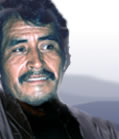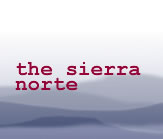 |
 |
||
 |
|||
|
GLOSSARY Mexico glossary |
transcript |
| Section 1 | What were the traditions of our forefathers like? The traditions that our forefathers had were very nice, and everything was well organised...they celebrated four festivals a year. |
And what did they do at the festivals? As is the tradition in this community, they appointed a mayordomo (person responsible for arranging community festivals; a cargo - mandatory unpaid community - position) who is in charge of buying the candles to burn in the church. On the day of the festival the fiscales (those responsible for certain church activities) are in charge of lighting the candles. The mayordomo has the duty of visiting the musicians so that they take the candles to the church. Also the mayordomo sees the fiscales, so that during the festival, in the church, they light the candles and look after them so that they burn well, and also they have to sweep [the church] and change the flowers. |
|
Who elect the fiscales? The municipal authority. They appoint someone from the community every year, after the festival of San Miguel Ė which is celebrated on the 29th of September. He is named on the 30th; itís done the same every year. The fiscales are in charge of ringing the bell on the days of festivals, calling the people to come down to say the rosary when the priest arrives. They also ring the bell three times a day: once at dawn and midday, and lastly at night, at eight oíclock. Well, if the fiscales didnít ring the bell, well, then the authorities called them to ask why they hadnít rung the bell - and there was a fine if it happened again. |
|
And how do they do it now? Well, now they donít do anything, everything is forgotten. Well now, when there is a festival they forget to do the procession with the church statues. The topiles (those holding a junior cargo position involving running errands and keeping order) donít bring a canopy to give shade for the statues, which are San Juan, San Nicodemo, El Dulce Nombre (literally, the sweet name) and San Miguel; theyíre the ones that go in the procession. |
|
| Section 2 | What else did they do? Well, they also forget Lent Ė which is (before) Holy Week. Before, they had many traditions. They started on Thursday in the afternoon and on Friday, from the morning till the afternoon, they recited the Passion of the Lord Jesus. They didnít ring the bell, but played matracas (wooden rattles) from Thursday in the afternoon all day Friday, till dawn on Saturday. And at ten in the morning they said that the gloria (joyful time) had begun and then they began ringing the bell. Then they went on the procession - and also the community began killing chickens and pigs, the young ones began dancing and others drank alcohol. |
Do you know more or less why the young drink alcohol now? Well, like always at a festival, first they drink mezcal (traditional alcoholic drink made from maguey, the agave, an aloe-like plant, about 1 metre high) and chingre (traditional alcoholic drink made from fermented sugarcane) and they say thereís a party. When there is a religious festival, people come from other communities. What they do is give out alcohol, they say itís ďel respeto de unoĒ (good hospitality) and thatís how the kids start drinking. Even women drink the mezcal and chingre. |
|
Okay. And do you know all the traditions of this village? Yes. For example, soon it will be the fiesta de muertos (Day of the Dead), which is All Saints Day. They used to say that the dead came back [on this day]. They prepare the table because the first day of November is the day that the dead and everyone comes. The whole community kills chickens and makes tamales (traditional dish of ground maize with various fillings, wrapped in banana or corn leaves) and they put bottles of mezcal on the table, they put out bread and fruit, and make decorations in the shape of an altar where the table is prepared. |
|
And now, does the all community do the same as before? No, now the traditions are being forgotten. Now they do as they like; some still do it but others donít. Well, the older people still carry on like the forefathers did, but the young people have their own way and now itís changing, they donít want to do the same any more. Itís not important to them like it was before, because before they rang the bell, like when someone dies. Well, thatís how they are doing things; now they donít do as much. |
|
Why are the traditions being forgotten? Because now thereís studying and they all know how to read and write and so in that way they donít take any notice and they donít obey what the older people say. Because before there werenít schools, there wasnít anyone who could read, and in that way they did as the elders said. |
|
And is there no way to recover the traditions of the forefathers? Well, it looks a little difficult to me because not everyone takes notice. Even though they say that they are Catholic they donít practice it, because there are some who, even though they want festivals Ė well, they go to work and they arenít at home for the day of the festival. And like that, others see this and do the same on the day of the festival - they go to work. |
|
Who are here for the festivals now? Well now I just see the (community) authority, the band, kids who like sport, those who have cargos (unpaid community positions) in the church and just women, in the house waiting for the visitors. |
|
| Section 3 | And who organised the village before? Well, before there was order, the way the old officials organised things - and thatís what the village did, they did as they were told, all the old traditions. |
And what did they do with the people who didnít obey [community traditions] back then? They punished them, they fined them. Before, they remembered that December is when they do the nativity play, the entire community went to the church to listen, they all went. Nowadays I see that they donít do the same, itís changing now; itís being done differently - how they like, how they please. |
|
What year did you see that they were still doing it in keeping with the traditions of the village? Well since (ie when) I was a child I saw that they did everything the same and everyone did something. |
|
And how old are you now? Iím 62. |
|
And in which year were you born? I was born in 1946. [Ď36 surely?] |
|
Well then, thank you. |